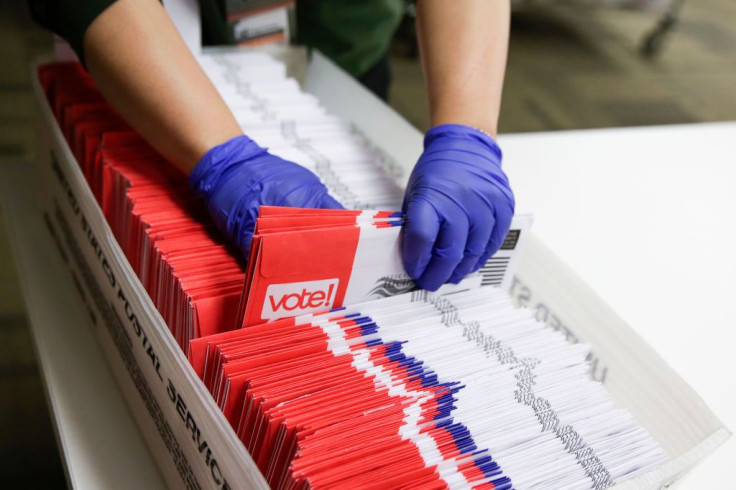How Blockchain Technology Can Resolve Concerns Over Mail-In Voter Fraud

KEY POINTS
- Seventy-eight percent of voters in the poll said they’re at least a little bit concerned about voter tampering.
- According to a survey from OneLogin, both Democrats and Republicans expect voting to go digital within the next five years.
- We can’t expect many people to turn out on election day without more options to vote safely.
As the November elections loom less than 100 days away, the latest Harvard CAPS-Harris Poll finds that 60 percent of voters support a mail-in option, but at the same time, Seventy-eight percent of voters in the poll said they’re at least a little bit concerned about voter tampering. Which poses the question, does technology provide better solutions than paper mail-in voting?
Last month, mobile voting app Voatz launched Safe Vote WV to help West Virginians cast their November votes using a secure blockchain-based platform from the comfort of their own homes without exposing themselves or others to COVID-19. This is also especially helpful to military members stationed abroad or the disabled.
Montana is also using advanced mobile voting software from Votem, one of several U.S. companies offering secure blockchain-based online voting solutions.
According to research by the International Foundation for Electoral Systems (IFES), worldwide, more than 50 elections have been postponed to limit the spread of COVID-19. Blockchain and distributed ledger technology (DLT) are proving to be good options for organizing and conducting free and fair elections during the pandemic.
According to a survey from OneLogin, both Democrats and Republicans expect voting to go digital within the next five years. Younger voters were found to be more interested in online voting than seniors. Almost half of millennials and 55% of Gen Z respondents said they would be more likely to vote online. Only a third of people over 74 said they would be ok with it.
After the first outbreak of COVID-19, the Center for Diseases Control (CDC) released standard operating procedures (SOPs) for poll workers, voters, and world governments with recommendations on how to vote and campaign. But they also stressed the importance of more voting options so that people in every nation can reduce crowding to maintain a low rate of infection. Their procedures impose a lot of restrictions, without very many solutions.
Recently, the World Economic Forum highlighted that increasing anguish with election security, voter registration integrity, poll accessibility, and voter turnout have all led multiple governments to look into blockchain-based voting in order to rally faith and participation in essential democratic processes. They pointed out how Blockchain’s decentralized, transparent, immutable, and encrypted qualities could potentially help minimize election tampering and maximize poll accessibility. Although minimal, they did acknowledge the risk of cyber-attacks and privacy concerns if countries are not opting for extremely vetted technology providers and systems.
Brock Pierce, a blockchain enthusiast and 2020 U.S. Presidential Candidate running as an independent, favors blockchain-based technological solutions. This week he stated how pilots across the U.S. are using blockchain voting at the local level. The way that voters can have a digital identity using Blockchain should eliminate all voter corruption and election fraud once global voting systems are updated.
It’s crystal clear that we can’t risk the health of the general population by making them go and vote somewhere in public. President Trump said in a tweet that we “must know Election results on the night of the Election, not days, months, or even years later!"
It’s true that paper ballots mailed in take longer to count than votes cast in voting booths do, but we can’t expect many people to turn out on election day without more options to vote safely. Blockchain isn’t perfect, but it’s a viable option.
Alexis N. Esneault, Esq. is an Attorney and AL Coordinator for Takeback.org
© Copyright IBTimes 2025. All rights reserved.





















